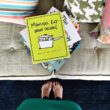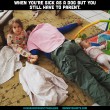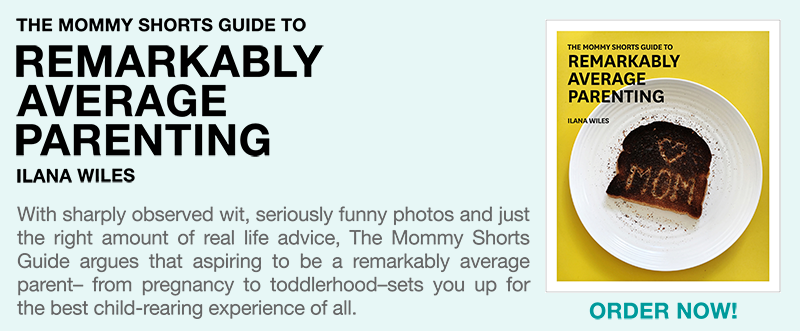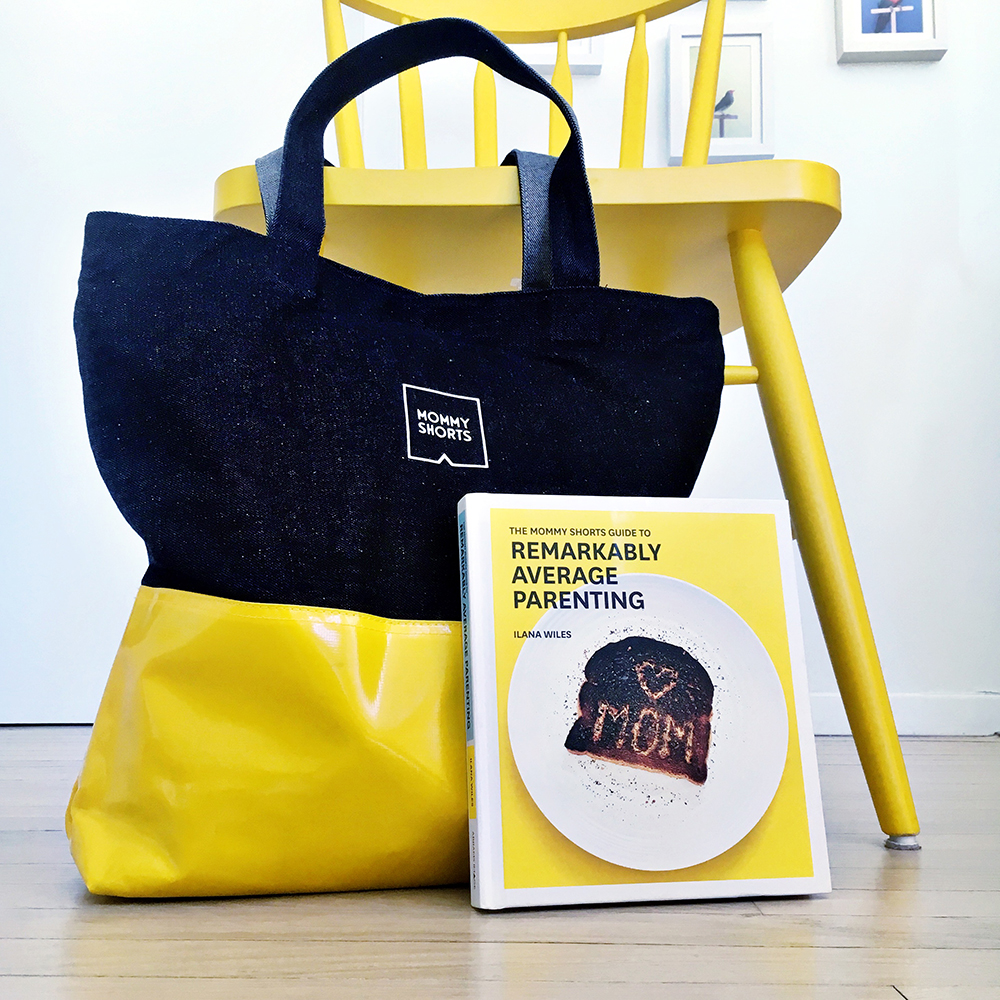 Mazzy is in week two of her toddlers transitions preschool program. Of course, since NYC preschools are outlandishly expensive, I expect that by week three, she will be quoting "To Kill A Mockingbird", completing complex calculus equations and beginning the internet start-up company that will eventually be bought by Google for several billion dollars (just like my Good Preschool Vs. Bad Preschool chart suggests).
Mazzy is in week two of her toddlers transitions preschool program. Of course, since NYC preschools are outlandishly expensive, I expect that by week three, she will be quoting "To Kill A Mockingbird", completing complex calculus equations and beginning the internet start-up company that will eventually be bought by Google for several billion dollars (just like my Good Preschool Vs. Bad Preschool chart suggests).
Dr. B (our early childhood development specialist) decided to take this opportunity to set me straight and tell me exactly what I should expect from Mazzy's highfalutin preschool education.
—————————————-
Participation in a preschool program is associated with many positive outcomes for children including improved cognitive development, better social skills and reduced chances of being retained or placed in special education.
However, it is important to remember that children will learn pre-academic skills at different rates and your emphasis should be on exposing your child to new concepts and developing their interest in learning as opposed to placing too much pressure on them to master specific reading or math skills (e.g., There is no relationship between when a child starts to read and how well they read later on).
10 Key Developmental Opportunities for Children Placed in a Preschool Program
1) Establishment of Teacher-Child Relationships:
The development of positive, nurturing, and responsive relationships with teachers is arguably one of the most critical outcomes of preschool. Research shows that teacher-child relationships in preschool can have a significant impact on the developing brain such that they enhance developmental outcomes including academic performance, mental health, and interpersonal skills. This is because young children learn through interactions with more capable adults and children are more likely to accept adult guidance within the context of a warm and trusting relationship. Teachers also have a critical role in providing children with the encouragement necessary to build self-esteem, confidence, and motivation for learning.
2) Socialization with Peers:
The development of social skills is an important outcome of preschool programs and is highly predictive of future academic success. Through interacting with peers, children learn to share, take turns, communicate with peers in an appropriate way, and learn to regulate their behavior and emotions when interacting with others.
3) Learning through Play:
Play is critical to a child’s development. When children are playing, they more engaged in the learning process, able to make sense of their experiences, and able to express themselves and their creativity. In addition, the time a child spends engaging in pretend play is associated with better attention, memory, language use, problem-solving, and higher-order thinking. In recent years, experts in the field have argued that children aren’t playing enough in preschool; and that children are spending too much time in teacher-directed seated activities as opposed to child-directed instruction and hands-on activities.
4) Developmentally Appropriate Activities:
Children learn at the highest rate when information is matched to their ability level. High quality programs have instructional materials and activities that are individualized for each student with the appropriate amount of challenge and stimulation so that children are engaged in learning as opposed to being bored or overly frustrated.
5) Activities that Promote Self-regulation:
Children’s self-regulation (their ability to regulate their emotions and behavior) in preschool has been found to be more predictive of school achievement in reading and math than a child's IQ. Self-regulation can be enhanced by implementing classroom routines and schedules, giving children responsibilities (e.g., putting toys away, distributing materials), and providing opportunities for children to make meaningful choices and be more independent. In addition, children should be explicitly taught to follow rules and understand concepts that promote their personal health and safety.
6) Early Literacy Activities:
Children benefit from frequent opportunities to engage in interactive book reading with teachers. These activities should be designed to expand their vocabulary and encourage them to ask and respond to questions about what they read. Children should be exposed to basic print concepts such as how to handle a book; recognize letters, words, and sounds; rhyme words; recognize his/her name; write letters or letter-like shapes; and understand simple sentence structure. A child’s ability to listen to, identify, and manipulate language sounds (referred to as phonological awareness) is a critical factor for learning to read.
7) Early Numeracy Activities:
Children benefit from activities that expose them to early mathematical concepts such as identifying common shapes; number and quantity; sorting and classifying of objects; measuring, comparing, and ordering of objects; and simple addition and subtraction.
8) Early Science Concepts:
Children should be exposed to activities that elicit early scientific thinking about how the world works. Teachers should encourage children to ask questions and explore their environment in ways that expand their knowledge and vocabulary such as making predictions, use of trial and error, making observations, and drawing conclusions.
9) Early Social Studies Concepts:
Children should be encouraged to think about themselves within the context of their family, community, and history. For example, they may engage in activities that require them to compare themselves to others, discuss similarities and differences across people and families, and use words or phrases that differentiate between events that happened in the past, present, or future.
10) Alignment with State Pre-K Learning Standards:
Most states have developed Pre-K learning standards that specify the types of skills and knowledge that children should attain in preschool. High quality preschool programs often develop or adopt a curriculum that is aligned with state learning standards. State standards are available to the public and are often available online. You may wish to review your state's Pre-K learning standards to inform yourself about the types of knowledge, skills, and activities that your child should be exposed to during the preschool years.
Finally, remember that a child’s best and most important teachers are their parents. The best thing that you can do for your child's academic development is to be involved in their education and help them develop a positive and healthy attitude toward school.
———————————-
Even though Dr. B did not mention it above, I thought I would share a video of Mazzy clearly displaying some highly advanced "out-of-the-box" thinking.

























Love this! Thanks Dr. B. My son is nearly 21 months and I’ve been considering placing him in some kind of pre-school program here in Malaysia when he’s 2. This confirms that I should really look into it.
And go Mazzy with the painting!! I like that she shared her brush and color with the child next to her. Love, care & share. Socialization, right?
Brody just started preschool this year as well- he is 2.5 and has always been home with me, so didn’t have day care to help with some social skills. My biggest hope is that it will help with some of his articulation challenges as it drives me nuts (and frustrates him) that I can’t understand what he’s saying. I also like that it gives me 2 days a week to have some solo time with the twins, I feel like they were cheated out of that 1 on 1 time that I had with their older bro.
Great article! And I love the video. I am currently looking at preschools for SB. I already knew some of these benefits, but learned some new ones. 🙂
I am cracking up watching her politely tell the neighboring mom that her painting blows.
Does Dr B have any opinions on mixed age preschool programs versus age-specific programs?
Thank you for sharing! My daughter is 18 months old, and my son is 8 weeks old. They are both in overly priced day cares, so it is definitely nice to know what to expect.
Love that she felt she could spread the love …
Mazzy figures if she puts her stamp on another child’s work, they may have a shot at it being worth something some day.
I’ve never heard of that. I’ll ask her. Mazzy’s preschool is age-specific.
My mom and I were just talking about this the other night – as a kindergarten teacher, she’s highly attuned to how preschools and curriculum-based daycares (like the one Vivian goes to) prepare children for school. I’m going to send her this post.
SHE IS ADORABLE!!! Is the name Mazzy short for something? I love it!!! I have always liked the name Jasmine because it could be shortened to “Jazzy” but I’ve never heard Mazzy before- so stinkin cute!!!
keri
I’m so happy with your blog site, it contains all the matter with regards to Pre School Education and Pri Primary Education Good luck to you and your well performed job. Thanks for keeping us updated with the latest information for Pre School Education and Pri Primary Education
Regards
Pre School Education,
Pre Primary Education
I’m so happy with your blog site, it contains all the matter with regards to Pre School Education and Pri Primary Education Good luck to you and your well performed job. Thanks for keeping us updated with the latest information for Pre School Education and Pri Primary Education
Regards
wow nice post related education
Awesome and interesting article. Great things you’ve always shared with us. Thanks. Just continue composing this kind of post.
It’s good to know that early literacy is also something to expect from a preschool program. My daughter, while curious about picture books, has been having a hard time pronouncing certain words. I hope that can be fixed early on in her education with the right preschool to attend.